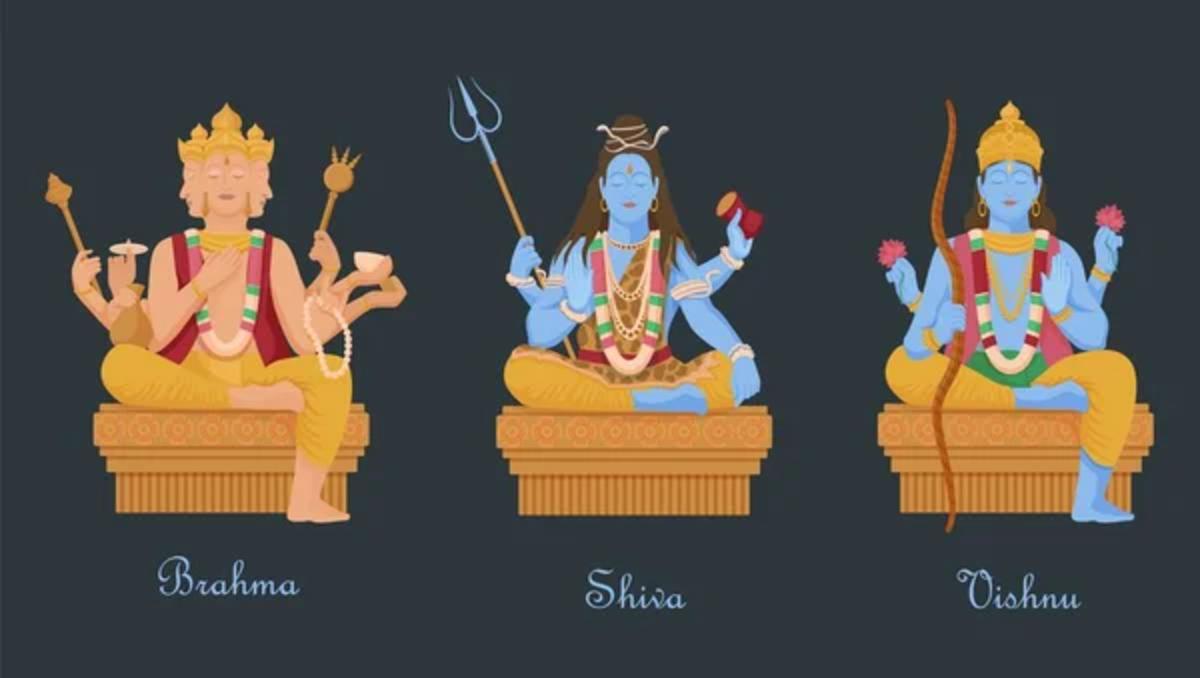GODS AND MANAGEMENT FUNCTIONS IN HINDU MYTHOLOGY
Hi Friends,
Government is defined as “a particular system used for controlling a country” or “the process or manner of controlling a country state etc.” (Merriam Webster Dictionary). But can we see the government? No - definitely not. It is necessary for proper management of day-to-day affairs of the state. But we feel the presence of a government through the Ministers, Administrators, Judiciary, the Army up to the lowest functionary like the housekeeping staff. We approach the administrators and other government officials to get things done for us and they in turn run the state by providing the necessary infrastructure, constructions, re-designs maintenance, keeping law and order, policing, providing security to the citizens etc. using the regular funds which we pay as taxes
In Hindu Mythology, we have scores of Gods with various functions. I have tried in this blog to give a different interpretation of Hindu Mythology and its Gods and regarding the Supreme Omnipresent, Omniscient and Omnipotent intelligence which we call as “God”.
Hindu Vedanta does not speak about multiple Gods, but about a Supreme Power only which governs Nature and the Universe including creation and destruction. The Hindus call this ‘The Brahman’ – omniscient, omnipresent and omnipotent entity in the Universe. Hindus describe ‘Him’ or ‘It’ as Eternal and Indestructible. This entity is called “Swayambhuva” which means ‘self-born’ or ‘self-manifested’. Also called ‘Anantha’ which means ‘without a beginning or end’. But for the common man, talking of the abstract concept of God as a formless being would be beyond his understanding and it is here that the second concept of different “Gods” assigned different “duties” to suit one’s attitude and tastes, come into force. Let us see a small example of these.
There is a sloka (verse) in the Vedas which start thus, “Akasaath pathithum thoyam, yada gacchathi saagaram … meaning, “All the water falling as rain flow with different names (river, brook, stream, etc.) finally to merge with the ocean, thus all prayers to all Gods finally reach HIM (one God)”.
Let me now briefly link my thoughts to the multiple Gods in Hindu Mythology to Management and Governance.
Though the Superior Being is described as formless and endless like pure energy, Hindu Mythology assigns the three main ‘Gods” who are called the ‘Thrimurthis’ (Trinity) a management function each. These Trinities are named Brahma, Vishnu and Shiva. Let us briefly analyze the function of these three applying the principles of management.
Brahma is the Creator. Any creation must start from a thought for e.g. the modern computers or aero planes all started as a concept in the mind of one or more persons, which then materialized into the reality – what we see today.
So also, Brahma is said had a thought while meditating and began creating. But to create anything what does one mainly need? It is Knowledge- you need knowledge to create a computer, an aircraft or a clone. That is why it is said that Brahma was wedded to Saraswathy who was the Goddess of Knowledge. Knowledge was the “better half” of Creation.
Next, we will see about Vishnu. He is worshipped as the God of Maintenance. He maintains the life forms on the world. What is created by Brahma is maintained by Vishnu.
But what is the fundamental resource needed in an organization for maintenance – it is money or finances. Isn’t it? So, Vishnu is said to be wedded to Lakshmi, the Goddess of Wealth. Or in other words, Wealth is the better half of Maintenance.
Thirdly, continuous Creations and Maintenance will choke the system and the resources in the world, and you need to keep a balance and avoid overcrowding. Further old creations (may it be bridges, buildings, roads and the like) must be pulled down to give way to new creations or constructions. Older technology should be removed and replaced by new technology in any organization.
Shiva is given the task of Destruction. He is the God of Destruction, be it in the form of earthquakes, wars, floods, landslides or any natural disasters. He destroys what needs to be destroyed, only to pave the way for Brahma to create anew. And for destroying anything you need Power. Thus, Shiva is wedded to Sakthi, the Goddess of Power. Sakthi in Sanskrit means Power or Strength). To destroy, one needs power. Hence, we see that Power is the better half of Destruction.
Thus, the Trinity concept from a management point of view explains the maintenance of balance in the Universe by equalizing creation, maintenance and destruction. Don’t we all see it in all organizations, industries and governments in the country?
I would describe these as “functional” Gods, which a common man can grasp and understand and pray to. So are the multitudes of Gods in Hindu Mythology who are assigned various portfolios of management. But the basic concept of one Supreme Being like the Government which is formless would explain the concept of multitude Gods in Hindu Mythology looking after the varied functions for mankind.
Hi friends,
I am offering a FREE eBook on "Diseases of the Heart". It is about FOUR main diseases that affect the heart namely, CORONARY ARTERY DISEASE, HEART FAILURE, HIGH BLOOD PRESSURE and ATRIAL FIBRILLATION. This is written in simple English for the common man and is easily understandable. Download the FREE eBook and learn about the Heart today. Click on the LINK below to get the book.
https://sahasranam.ck.page/708a4d8aa7
https://amzn.to/3XTYUtm - Surge Protector Outlet Extender
